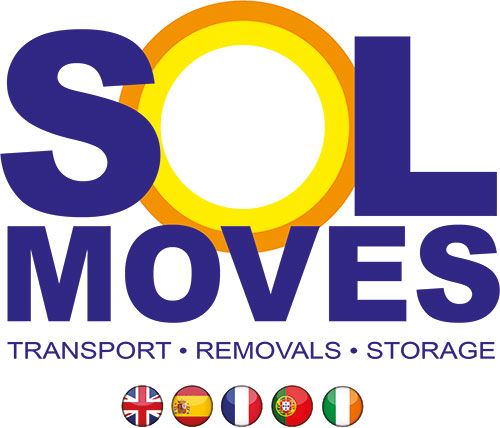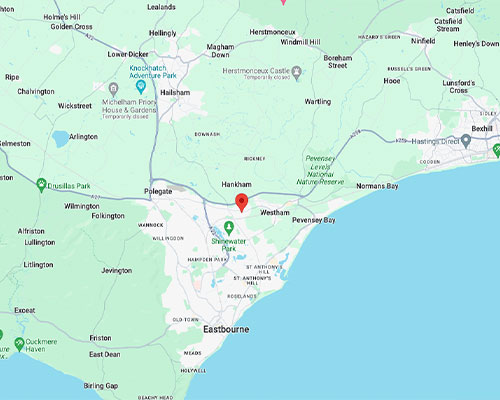Moving to Europe can be an exciting and rewarding experience. With so many countries to choose from, each offering a unique culture and lifestyle, the possibilities are endless. Here at Sol Moves, we specialise in European removals and have created this ultimate guide to moving to Europe to help you along your moving journey.
Whether you’re looking for a new place to call home, a change of pace, or a chance to experience something new, a move to Europe could be the perfect opportunity. However, there’s a lot to consider when planning a move to Europe. From visas to housing, to the cost of living and the job market, there’s a lot to think about.
That’s why we’ve put together this comprehensive guide, to make it easier for you to make the move to Europe. In this guide, you’ll find all the information you need to know about living in Europe. We’ve included tips and advice on visas, housing, cost of living, the job market, and more, so you can make the best decision for your move.
So, let’s get started!
Overview of Moving to Europe
There are many reasons why people decide to make the move to Europe. Some decide to move to experience a new culture and lifestyle, while others are seeking better employment opportunities or pursuing a new career.
No matter why you’re moving to in Europe, this ultimate guide to moving to Europe, recommends you do your research and understand what the experience will entail.
Of course, each country has its own unique culture and way of life, but some general factors are common across Europe. As you plan your move to Europe, keep these in mind:
- You’ll likely need to learn the language of the country you move to. Some countries may have multiple languages, so make sure you do your research on which language(s) you need to know.
- While many European countries use the Euro, some countries use the currency (such as Britain and Switzerland). Make sure you familiarise yourself with the local currency so you don’t get caught off guard.
- The weather in Europe varies greatly, depending on the country you live in. While some countries, such as Spain and Portugal, have warm and sunny climates year-round, others, such as Ireland, experience a four-season climate.
Housing
Housing can be a major factor when moving to Europe. Depending on the country, city, or neighbourhood you live in, renting or buying a home in Europe can vary greatly. When it comes to renting in Europe, some countries offer long-term leases while others do not (such as the Netherlands and Germany).
This can make it difficult to plan long-term if you’re not sure how long you’ll stay in the country. That’s why it’s important to research the housing market in your desired country and city. If you’re planning on buying a home, it’s important to note that the process varies from country to country to make sure you do your research and know what you’re getting into.
Cost of Living
The cost of living in Europe varies depending on the country you live in. While some countries are relatively affordable, others can be quite expensive. So, this ultimate guide to moving to Europe encourages the importance of researching the cost of living in the country you want to move to.
You can do this by researching online resources, such as Numbeo and Expatistan, to get a rough idea of how much things cost in your desired country. Once you’ve found your desired country, you can also look into the city and NE neighbourhood might want to live in, to get an idea of how much things cost there. This will help you plan for the cost of living in your new home.
Job Market
The job market in Europe is competitive, with many people moving to Europe for better job opportunities. While most European countries have a thriving job market, some are more competitive than others. For example, if you’re interested in working in the healthcare industry, you’ll likely find more job opportunities in countries such as Italy and Portugal.
However, if you’re interested in working in tech, you may want to consider moving to a country like Germany or the Netherlands. That’s because these countries offer better job opportunities in the tech industry.
Education
If you have children, or plan on having children, it’s important to research the education system in your desired country. While many countries have similar education systems there are some differences. For example, in Germany, children start school at the age of six, while in France, children start school at the age of three.
In some countries, education is free; in others, it’s not. Be sure to do your research before moving to ensure that your children get a quality education.
Healthcare
One of the most important aspects to consider in this ultimate guide to moving to Europe is that the healthcare system in Europe is different from the healthcare system in the UK. In most European countries, there is a government-funded healthcare system, which means that healthcare can be free or inexpensive. That being said, healthcare in Europe is not as advanced as it is in the UK.
This means you may have to wait longer for appointments, or fort results, etc. That’s why it’s important to research the healthcare system in your desired country and city.
Culture and Language
The culture in each country is unique. It can be difficult to understand and navigate if you don’t know anything about it. That’s why it’s important to learn as much as you can about the culture in the country you want to move to.
You can do this by reading books, and articles, and watching documentaries on the country you want to move to. You can also visit the country, if possible, to get a better feel for the culture, and language.
Transportation
Transportation varies greatly across Europe. While some countries have extensive public transportation systems, other countries have limited or no public transportation systems. If you plan on living in a city that has limited public transportation, you may want to consider buying a car.
This can be helpful if you want to travel outside of the city, or if you need to travel with a large group of people.
Tips for Moving to Europe
With so many factors to consider when moving to Europe, it can feel a bit overwhelming. That’s why it’s important to plan and keep these things in mind when you’re moving to Europe. Here are some tips for moving to Europe:
- Before moving to Europe, research the culture in your desired country to get a better understanding of the people and way of life.
- Knowing the language of the country you move to is essential. This will help you better navigate the culture and way of life, and integrate with the locals.
- Before moving to Europe, make sure you have all the proper documentation (such as a valid passport and visa if required).
- Moving to Europe is not cheap, so it’s important to save money before you move.
Conclusion
Moving to Europe is a major decision. It can be scary to uproot your life and move to a new country, but it can also be rewarding. It’s important to do your research before deciding where to move to ensure that you make the best decision for yourself and your family.
While each country has its own unique culture, language, and way of life, some general factors are similar across Europe. If you follow our ultimate guide to moving to Europe you’ll be well on your way to a successful and rewarding move.



